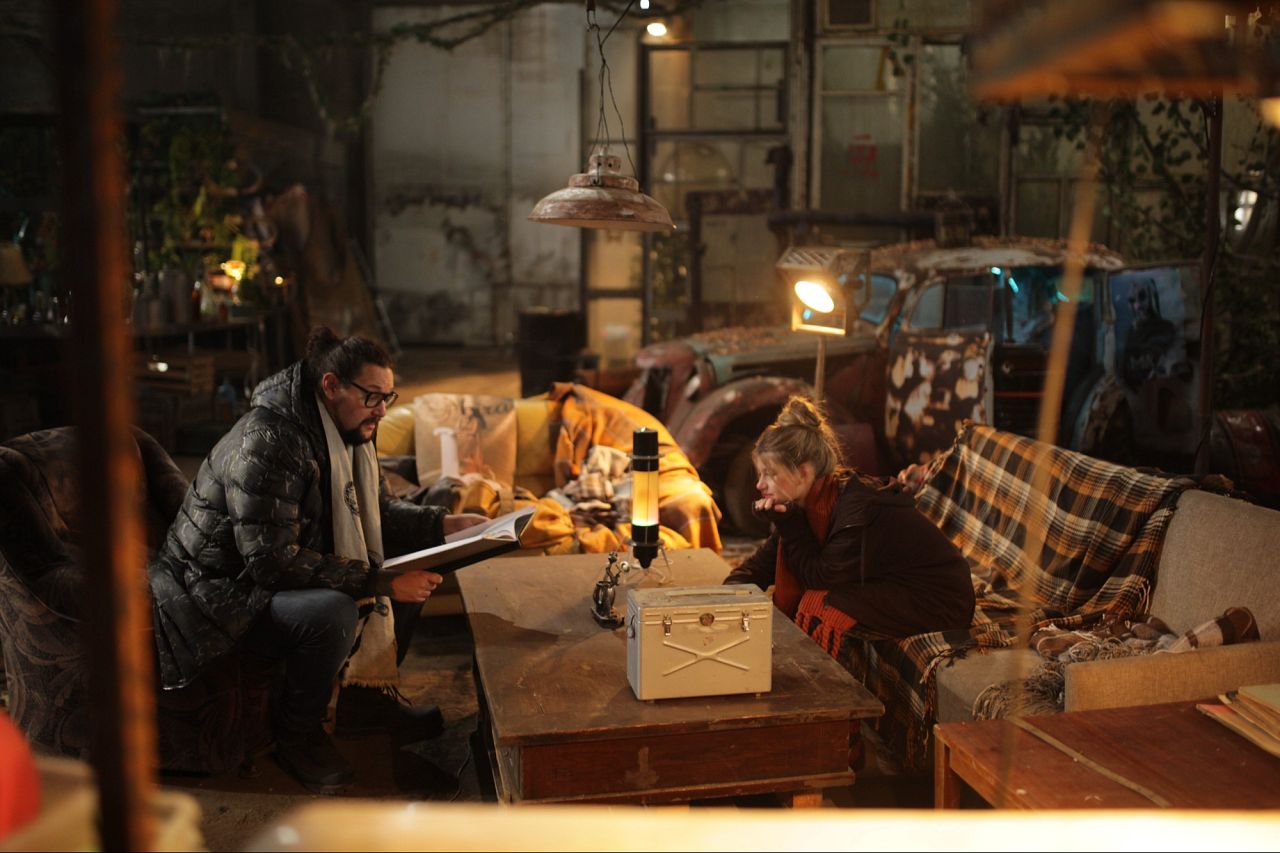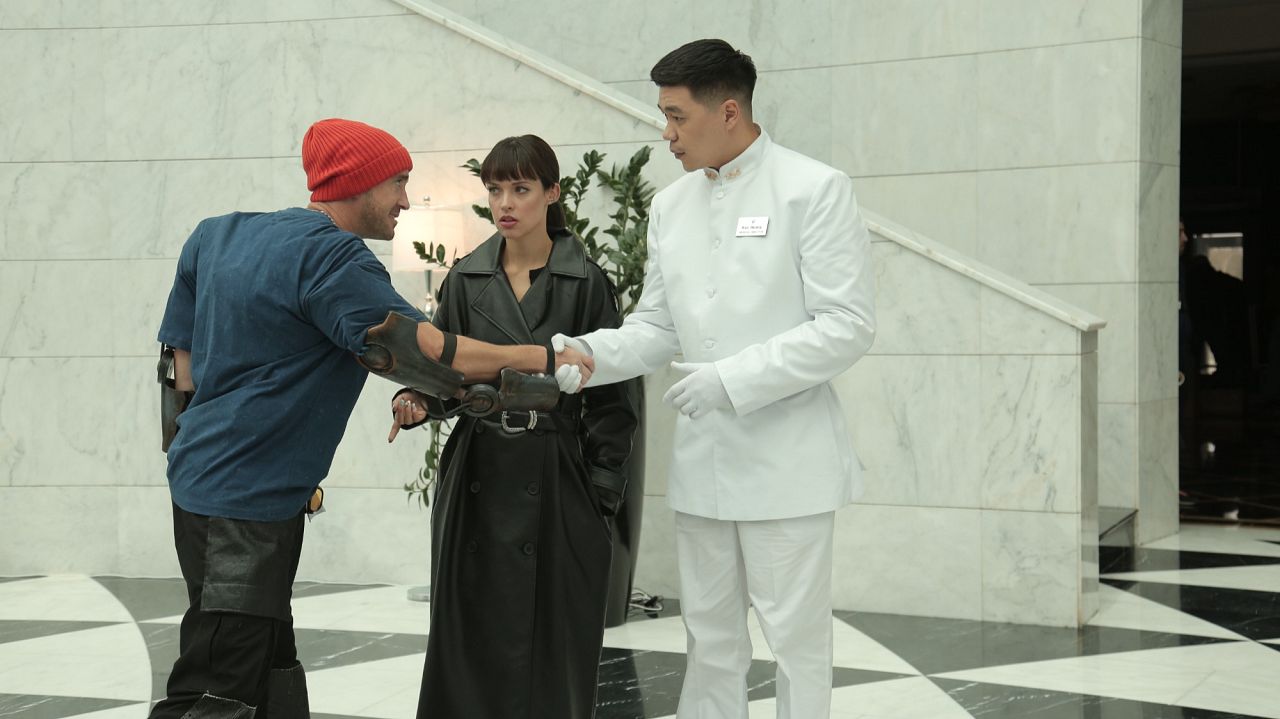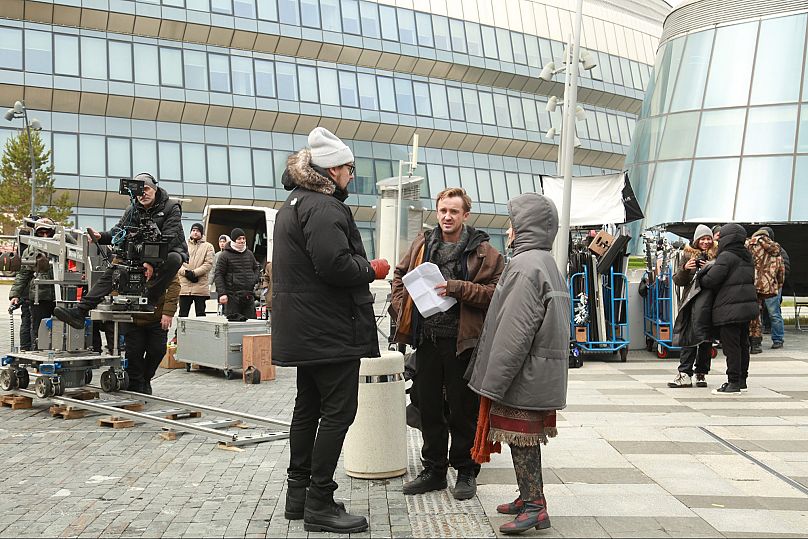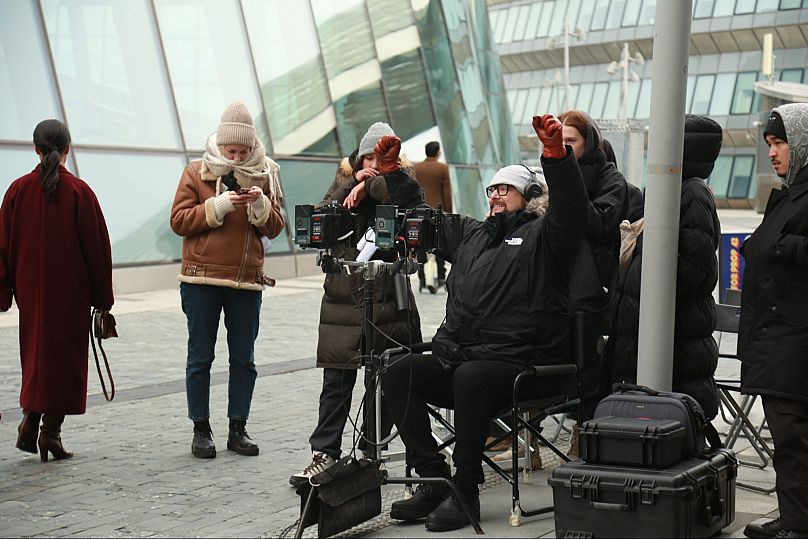Who wants to live forever? Tom Felton stars in biohacking dystopian drama
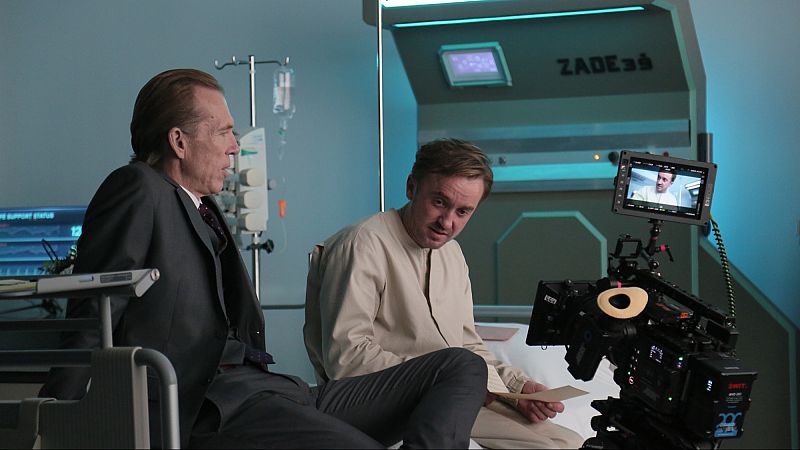
Last month, when the Russian and Chinese presidents were overheard talking privately at a Beijing military parade about living till being at least 150 years old, repeated human organ transplants were at the centre of that 'hot mic' moment.
The musings of Vladimir Putin and Xi Jinping fuelled lots of talk online about immortality which underlined how advances in medicine and technology are making once far-fetched ideas now seem attainable.
But what if those twin pillars of science could help create enhanced humans? How would it change the world? And what price would people be prepared to pay for fitter, stronger, and more productive versions of themselves? These are only a few of the questions explored in Timo Vuorensola's new film Altered, where the world is divided most definitely between the haves and have nots.
Euronews caught up with the film director behind Iron Sky and 97 Minutes to discuss his the movie, his lead casting choices of Tom Felton (Harry Potter’s Draco Malfoy) and Richard Brake (Game of Thrones’ King of the Night), and the decision to produce the feature in Kazakhstan.
What should audiences look forward to in Altered? What inspired you to explore the concept of altered humans?
Timo Vuorensola: I got inspired by a couple of major themes, but I think technological progress has been an interest of mine all the time. And, lately, the faster technology improves, the more we are leaving behind people who don't have access to, or the possibility, or the interest in that kind of technology. And they are easily becoming second-class citizens because our society is so much shaped around the fact that you know how to use all these tools, whether it's smartphones, whether it's a laptop, whether it's everything you have on the Internet.
And nowadays, with artificial intelligence making big moves and changing the whole landscape, not everybody has that possibility. At the same time, I have been interested in biological development, where we, interestingly, haven't really gone yet. I'm sure science and ethics are the reasons for that. But I thought that, okay, what if I take this idea of rapid AI development and just change that into rapid bioengineering development, and make that a story. And I think that's when the bell started to ring, “Okay, there is a story somewhere there.”
What do you think was that one crucial point in your film where humanity made the decision to go in a different direction and develop biotechnology?
In my film, the story starts around the time of the missile crisis in the 1960s. And in my film, the world war actually started, and nearly everybody was destroyed, but humankind rebuilt itself. But instead of going digital, they started to research biological possibilities. It all started with a great beautiful big idea that we're going to make humans even better, but then it becomes very ethically, medically, biologically, and scientifically questionable. How fast should it develop? Where is the line between regular and altered humans? What happens to those that become stronger, compared to those who are not? Are they now seen as the lower caste? And that's really one of the main things that I liked playing around with in this movie.
Kazakhstan played a huge role in filming, especially as a filming location. What led you to choose the country initially? How much of the production was actually completed there, and how was the overall experience?
Kazakhstan came into the picture when we started to look for a suitable location. And we knew that we couldn't be building everything on a CGI or in a studio. So, the question was, where are we going to find an architecture that would work in this kind of world? And well, it didn't take me long to realise that Astana is a beautiful city with quite amazing architecture. At the same time, it’s providing architecture of different kinds of eras. We needed both of those worlds in the film. We also needed more of a Soviet style older architecture. And then, we wanted to bring in that very high-tech, high-end architecture. And there aren't a lot of cities in the world that have both available. We travelled all over Kazakhstan looking for locations. Eventually, we decided that we're going to shoot everything in Astana. I think more or less 100% of the filming was done in Astana, except for a couple of drone shots.
How about working with the team there? Because you had to work with local production companies and local actors. How was that experience?
I've been working quite a lot with international crews, and I always find that it takes a little while to get attuned. Although film is a very structured system. Everybody has the same positions – there is a first assistant director, a director of photography, and a second camera assistant. And everybody has a different background from where they come, so they do the job a little bit differently. The great thing about Kazakhstan is that there is such a strong history of film. If we go back to the beginnings of film, we can find so much that's been done in that part of the world. So, finding professionals was not an issue for me. We had a very professional crew, and the same thing with the actors. Obviously, it is an English-language film, so that was a little bit restrictive for some of the actors, but luckily, we were able to find very good people to play the key roles. Obviously, I didn't know Kazakhstan's film culture that much, but when I started to work and really get to know the people, it was fantastic to see how great the actors there were. So, I would say my experience overall was great. The only thing was that by the time we were finishing, it started to get really cold.
Since we're talking about casting, how did the main cast come about? Why was Tom Felton chosen for the role of Leon? Why was Richard Brake picked for the antagonist role? And how do they meet the expectations of the characters that you wanted them to embody?
When I write, I don't want to have too much of an actor in mind because then you're most likely going to be disappointed because the schedules don't work or the budget doesn't work, or they just don't like the script. I like to keep the options open. For Leon, I needed an actor who has the vulnerability, who has the humour, obviously, pure acting chops. And then I started to go through people, and quite soon Tom Felton's name came up and I was like “that's it!” And I thought that he would have the qualities, the background. There were a lot of things that had a green flag about him. And so, we approached him, and he really liked the script and wanted to do it. And then with Richard Brake, it was kind of a similar thing. I knew I needed a strong presence. I needed somebody who can portray somebody who has this threatening presence, but I didn't want to have like a big, massive actor. I wanted somebody who has the physical presence, but it comes from the eyes and the face and the reactions. And then I started to look through ideas, and Richard Brake came up. Actually, a friend of mine, who had just done a film with Richard, said that he is a great guy. That's the way all these characters come up.
Every production has its challenges and hurdles. Have you encountered any problems when filming or in post-production of Altered?
Like every filming day, you start by solving a million issues, so in that sense, nothing new. We had a bit of a language issue. We had people coming from so many different backgrounds and so many different languages. Trying to get everybody into the same room and understand the same things, that was a bit of a challenge in the beginning, but once we got rolling, it was surprisingly easy. And then, post-production is always a pain, especially with my movies, because I make films with a lot of visual effects, and then I'm quite demanding when it comes to those visual effects shots.
How did the post-production go? You’ve spent it in Antalya, has that led to a more enjoyable end result?
It's impossible to say because post-production itself is a long journey. And when you start making a film, it's like you are introduced to an animal. You don't know what that animal is. You don't even know what species that animal is. And then you start to learn a little bit how this film works and how it comes together. And it's a massive learning experience. What I know for sure, shooting in Kazakhstan itself brought an interesting aura to the whole thing. It brought us all away from our homes and we had to get to know the place, we had to get to know the people, which went hand in hand with the process of understanding deeper the film and the world of the film and I think you can definitely see that resonating on the screen.
How does Altered fit within your broader body of work?
I think it is a continuation of what I've done with Iron Sky. Iron Sky was a film where I spoke about totalitarianism in today's world, how totalitarianism finds its way into today's political landscape. Altered is not so much about totalitarianism, but it is about the oppression of a certain group of people. It is looking at the oppression of the majority towards the minority. Iron Sky 1, Iron Sky 2 discuss the negative impact of totalitarianism and that ideology on society. Altered discusses that from a bit of a different perspective. But I always say that science fiction is a box, which offers a different kind of vantage point to our world. No matter how crazy or wild the world you describe in your movie, it is still talking about this world and our problems and issues that we need to solve. It just offers a different kind of perspective on this world.
What do you think will be your future works? Do you already plan for something, or are you just enjoying the little hiatus between filming of Altered and its release?
With the Iron Sky team, I'm working on a science fiction trilogy. I'm also working on a catastrophe movie, there is an action movie which I'm involved in. I'm also developing a Finnish action TV series, first of its kind in Finland. But, you know, with film you got to have a lot of balls in the game because you never know which is going to go forward and which is going to stall.
Today


